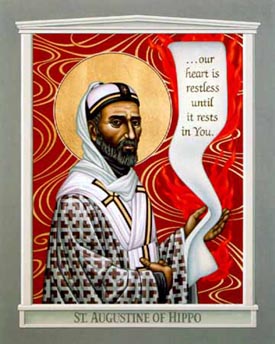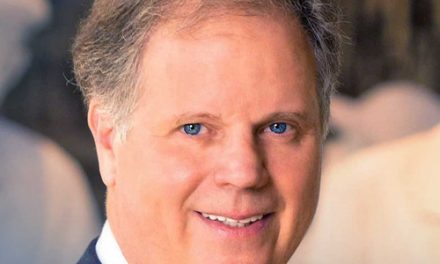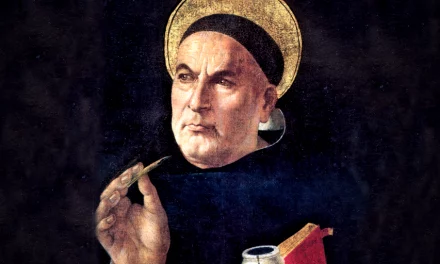This is the third guest post by Brian Green, writing for a series on Catholicism and Conscience from the Markkula Center for Applied Ethics at Santa Clara University. The Markkula center is currently having a yearlong speaker series on Conscience, some of which are of particular interest for Catholic moral theology.
In late January and early February, two speakers came to Santa Clara University to speak on their experiences of Catholicism and conscience. Roy Bourgeois, laicized Maryknoll priest, recounted his personal experience of following his conscience and advocating women’s ordination. Helen Alvare, professor of law at George Mason University, told her story of fighting the US government’s Health and Human Services contraceptive insurance coverage mandate (HHS mandate). Summaries of each talk are here for Bourgeois and here for Alvare.
When placed on the right-left spectrum of Catholics (a spectrum which is, admittedly, weak at providing helpful nuance, yet is nevertheless in common use), Bourgeois and Alvare would not be mistaken for each other. Bourgeois is a hero of the Catholic “left.” He has been fighting for peace and justice issues since the war in Vietnam, he was expelled from Bolivia, he was jailed for sneaking onto Fort Benning, Georgia, he founded the School of the America’s Watch, and finally he was laicized for advocating the ordination of women to the priesthood, even doing so on Vatican Radio (before being abruptly cut off). Alvare, on the other hand, is a hero of the Catholic “right.” She was formerly a spokeswoman of the US Conference of Catholic Bishops, and serves on Vatican committees. She opposes contraception and abortion, and is willing to argue her case in public, where she is sometimes even threatened with violence for what she says.
As an attendee of both talks, there was very little audience overlap between the two, which I think is unfortunate, because both talks were very engaging, and at their cores appealed to similar deep ethical values such as equality, freedom, and flourishing. Yet what most strongly united both speakers was the importance of the concept of conscience to each of them. Roy Bourgeois’ refusal to recant his opinion on women’s ordination was motivated by his conscience. Helen Alvare’s work to oppose the HHS mandate is motivated by her conscience. While the substances of their objections are different, the form is the same: conscience should not be violated. Both strongly feel that social forces are oppressing and hurting people, and both have been willing to face negative consequences for standing up for their beliefs.
What is it, then, about conscience that makes it such a powerful motivating factor in human behavior? What is it about the Catholic Church in particular that makes conscience such an important teaching?
There is a quote from John Henry Cardinal Newman at the end of Section 5 of his Letter to the Duke of Norfolk where he famously remarks “I shall drink – to the Pope, if you please – still, to Conscience first, and to the Pope afterwards.” This quote has been repeated many times to illustrate some of the complexity and power of the idea of conscience in Catholic teaching. Likewise, and in more technical language, St. Thomas Aquinas states that even an erring conscience binds. Under no circumstance is one to violate one’s own conscience, not if the Pope demands it, not if anyone demands it. This is exactly what Roy Bourgeois was doing when he refused to recant his advocacy of women’s ordination. He stood by his conscience. Similarly, Helen Alvare is doing the same in resisting the US government’s HHS mandate. The conscience is one place that external social pressure is not allowed to violate.
But pure respect for conscience is only one side of the Church’s teaching on conscience. The other side is that a conscience, properly formed, will generally conform to the teachings of the Roman Catholic Church. At this point it becomes clear how there can be a tension in the Church’s teaching: we must never violate our conscience and our conscience should match Church teaching… but what if it does not?
Here Bourgeois and Alvare part ways with respect to how Church teaching on conscience affects them personally. Bourgeois’ conscience, being not in conformity with Church teaching, was judged in error by the Vatican and therefore he was laicized. Alvare has not faced such a fate. While she is criticized and even threatened by those in the wider culture, she is strongly supported by the Church’s magisterium. What is in dispute, then, is not so much the primacy of conscience, but the primacy of the Church’s authority for teaching conscience in a substantive way.
And that is a dispute which cannot be addressed via a simple exercise of Church authority; it can only be addressed through the living witness of the Gospel in people’s lives – the authority of reality itself. Interestingly, both Bourgeois and Alvare appealed to this standard, both believing that ultimately their side would be vindicated by the visibly enhanced flourishing of those who put into practice the ideas which they are advocating. I think there are a lot of further ideas to unpack in those beliefs, especially as we are the Church of a crucified God which claims not to look on success as the world does, but that is a discussion for another day.
No matter how the future turns out, we can of course only make decisions based on what we know now. As we move into the future, the Church’s teaching on conscience will no doubt continue to be, for better or for worse, a source of both unity and division.
Written by Brian Green, Markkula Center for Applied Ethics, Santa Clara University





While Helen Alvare does make some excellent points, her case seems to illustrate the problems when one party’s insistence on its right of conscience impinges on the right to conscience of those subject to it’s power.
Religious employers (the dominant party in an unequal power relationship) claim the right to dictate to their workers as to what items the workers medical insurance might cover. And this claim is based on a non-infallible teaching which is not grounded in scripture and is not accepted by almost all Catholics (including almost all the experts on the papal commission on contraception).
But medical insurance is part of the employees wages for work done and therefore belongs to the employee. The employer has no moral right to interfere in the conscience decisions of employees around contraception. The employees conscience prerogative was upheld by many Catholic Bishops conferences in public statements on Humanae Vitae.
Fr Roy Bourgeois, on the other hand, has suffered greatly for a courageous stand for human rights, against violence and war, and for the legitimate rights of women and homosexuals. I find his witness for conscience much more compelling and much more solidly grounded in scripture and accepted Catholic teaching on the dignity and rights of the human person, particularly those who are exploited and oppressed.
God Bless